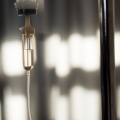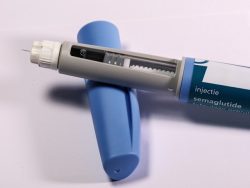Statins are some of the most popularly prescribed medications on the market with 1 in 4 Americans taking statin drugs (2011). Do they work? To read the read the early reports statins were wonder drugs, capable of reducing heart attack and extending lifespan with few side effects. No need to change one’s diet or lifestyle, simply take a statin and live longer.
Over the years, the statin market has expanded to include kids as young as 8 years old: “statin therapy is considered first-line treatment for pediatric patients with abnormal lipid levels.” When combined with our love affair with vaccines, the latest proposal includes a cholesterol vaccine for children at risk for heart disease. And since 75% of Americans are still not heeding the anti-cholesterol warning, intense industry lobbying successfully changed the risk equation for statin prescriptions, immediately expanding the market potential by millions more Americans and billions of additional revenue.
Statins for Health – Maybe Not
With 1 and 4 Americans taking statins and cholesterol levels presumably controlled to within the designated healthy ranges, one might expect a concomitant reduction in heart disease and heart disease related mortality across the population. One would be wrong. Despite controlling cholesterol, Americans are as unhealthy as ever, living with increasingly more chronic diseases and dying at higher rates than ever before. Is it possible we were wrong about the relationship between cholesterol and heart function? Is it possible in our exuberance to offer simple solutions to complex disease processes we have been exacerbating the very conditions we seek to treat? Indeed, it is.
Over the last several years, a growing body of evidence suggests that statins are not only not the wonder drugs we had hoped for, but instead, may be quite dangerous, especially for women. Statins induce diabetes (a major contributor to the metabolic dysfunction implicated in coronary artery disease), increase atherogenesis (the buildup fatty plaques responsible for coronary artery disease), and damage mitochondria, an effect that is exacerbated by exercise. As a result, and in non-industry sponsored studies, statin use is associated with higher rates of all-cause mortality, cancer, heart attack, stroke, than non-statin use. Yikes.
Cholesterol Blues
Just how statins induce such negative effects is linked, in large part, to their primary purpose, cholesterol reduction. We need cholesterol. Cholesterol – fat, forms the structure of all cell membranes. We need healthy cell membranes. Fatty acids provide fuel for the production of mitochondrial energy – ATP. ATP is required for all cell functions. Cholesterol is the primary ingredient for steroid hormone synthesis. Steroid hormones regulate everything from reproduction to heart function to central nervous system activity. We need healthy steroid hormone systems. And if those aren’t reasons enough to reconsider cholesterol, the brain needs cholesterol. Reduce the cholesterol in the brain and brain activity deranges, as evidenced by the increasing recognition of statin induced psychiatric and cognitive sequelae. When we reduce cholesterol artificially, we diminish the functioning of every cell in the body by multiple mechanisms.
Cholesterol and Heart Attack
What about the link between high cholesterol and heart attacks? Isn’t it the cholesterol that causes the plaques that block our arteries and cause all sorts of problems? And, aren’t our high fat, high cholesterol diets to blame for this build up? Perhaps not, and especially for women. According to our good friend Kelly Brogan, atherosclerotic plaques and heart disease represent a ‘multi-factorial inflammatory problem with disparate drivers in different people.’ The latest research suggests that these plaques are ‘not merely the passive accumulation of lipids within artery walls‘ but rather represent oxidative stress (mitochondrial damage) with incessant immune mediated inflammatory signals driven by dietary and other factors. This makes sense when we consider that 90% of first time cardiac events can be prevented with dietary and other lifestyle changes and diet and lifestyle effect mitochondrial functioning significantly (the mitochondria drive inflammation).
The most recent research on diet and nutrition suggests diets high in empty calories, carbohydrates and sugars and low in fat are to blame for heart disease, not the high fat diets we have all been taught to avoid. It should be noted, however, that the relationship between fat and health is complex. Too much or too little impairs mitochondrial functioning.
But Wait, There’s More
A research group out of Japan has gone so far as to claim that statins are not only dangerous for the reasons stated above, but statins induce the very diseases they are promoted to protect against. In their most recent publication, Statins Stimulate Atherosclerosis and Heart Failure: Pharmacological Mechanisms, the researchers boldly argue that:
“statins may be causative in coronary artery calcification and can function as mitochondrial toxins that impair muscle function in the heart and blood vessels through the depletion of coenzyme Q10 and ‘heme A’, and thereby ATP generation.”
In English – statins block a whole bunch of important chemical reactions that induce coronary artery disease where there was none before. They argue, rather persuasively, that statins cause the very disease process that they are promoted to prevent. Whoa.
According to this research group, statins create the environment where fatty plagues grow and thrive. They derail our innate mechanisms to clear those plaques by damaging the mitochondria and, in so doing, damage the very foundation of cell function: mitochondrial energy (ATP) production. Without functioning mitochondria (which we have written about on many occasions), cell damage and cell death occur. With enough damage, tissue and organ damage ensue, and complex multifaceted disease processes develop. Mitochondria are the engines of health. ATP is the fuel. No fuel, no function. Statins damage the engine and block the fuel line.
What’s Worse?
Statins are frequently co-prescribed with Metformin (gluocophage) to reduce glucose in Type 2 diabetes. Metformin damages mitochondria and reduces ATP production even further (more on this in a subsequent post). Combined, these two drugs set the stage for chronic disease and increase the need for additional medications that will also damage mitochondria; a rabbit hole that is not easily climbed out of unless one is willing to look beyond the medical model. Remember, one of the largest global studies on heart health found that 90% of first time cardiac events in men can be prevented with dietary and other lifestyle changes, 94% in women. Diet and lifestyle. Sit with that for a moment. Diet and lifestyle changes are all that are needed for most people to prevent heart attack. Diet and lifestyle.
We Need Your Help
More people than ever are reading Hormones Matter, a testament to the need for independent voices in health and medicine. We are not funded and accept limited advertising. Unlike many health sites, we don’t force you to purchase a subscription. We believe health information should be open to all. If you read Hormones Matter, like it, please help support it. Contribute now.
Yes, I would like to support Hormones Matter.
This article was published originally on June 10, 2015.















An awesome article. Indeed, there is a huge confusion out there. Case and point: https://www.sciencedirect.com/science/article/pii/S0002870308007175 a research titled “Lipid levels in patients hospitalized with coronary artery disease: An analysis of 136,905 hospitalizations in Get With The Guidelines” has shows tables and graphs how those with the highest cardiovascular event (dead or not, heart attack and stroke) had their LDL in the low range (as a result of statins). Unfortunately it is not an open article so the graph is not visible and I cannot attach a graph to a comment, but I created a shortcut to the image on another blog: https://cluelessdoctors.com/2018/11/29/one-more-misleading-article/
I was 29 years old when I started Lipitor. I was also a pharma “educated” critical care RN for several years prior to this. I found out I had “high cholesterol” when I had a physical when I entered nursing school, 10 years before, but being 19 and “invincible” I never thought about it. My cholesterol numbers had always been in the upper 200s, usually 260-290’s. When I was 29, my father had an 8 vessel bypass surgery…and that got me thinking, as he was only 48 years old. So at my next doctors appointment, when my doctor told me again I had “high cholesterol” and wanted me to start a statin, I though, I “know” everything there is to know about these drugs, and I agreed. I tolerated it well, until later Summer 2002 when I began to have profound headaches, the likes I’ve not known at this point in my life. They would cause me to call in sick to work on many occasions. Shortly after the headaches began, my wife informs me that there were bouts of confusion, on one occasion she woke in the middle of the night to find me in the kitchen, digging through the garbage can, and when she asked what I was doing, I told her, I was looking for some milk.. The next morning she had taken me to the Dr, who opined my headaches and this confusion were atypical migraines, and gave me an rx for Imitrex (Migraine Injection) which I could not figure out even how to give to myself, and I had practice nursing for 12 years…I should have not even had to think how to do that. My wife asked him for an MRI scan, to which he told her, it was not medically indicated…and we went home. I continued to have my bouts of headaches, episodic confusion, and extreme sleepiness…it had gotten so bad I would spend up to 18 hours in bed, per day. When one day, my wife brought me into the ER with Headache, Confusion, Slurred speech, my wife pleaded for them to do an MRI, they agreed to do a CT scan, which was normal. We were sent home, my wife called my doc at home to ask him to get an MRI scan, to which he agreed and was arranged for the following day. This Scan showed multiple scattered lesions throughout the grey and white matter of my brain, and I was referred to a neurologist. The neurologist quickly called it MS and was to begin me in some Medication for MS. Which I never started, because somewhere in my messed up mind, I did not believe it was MS, and we sought a second opinion at UW Madison, with an MS Specialist, who did not think it was MS, though he did not have an answer and wanted me to return another day for more testing etc…so we went home, with a bit more hope than we had thought. Over the next week or two, I was progressively worsening, increased freq and severity of headaches and confusion, missing more work than not and on one occasion my wife woke in the mote to find me walking down the middle of the street in my underwear (what I slept in). The following morning she called the MS Specialist we saw, and he told her to bring me down and he would meet us in the ER, so we dropped our 2 year old son at my parents, and drove the 3 hours to UW Madison. Where we met the Neurologist in the Emergency room. He evaluated me and after failing a mini mental exam, admitted me where I would spend the next 28 days in an end stage Alzheimer’s like state. I did not know my wife, nor my parents, my siblings nor my son. I wet and soiled myself, could not walk, nor speak coherently, I was a mess. I had a whole host of blood work and other tests done, and one of this lab tests that was consistently askew was the Serum lactate levels (Lactic Acid). I was evaluated by nearly every neurologist, med student and resident at UW Madison, and each one came up with a fantastic diagnosis, yet not one of them considered the notion, the Wonder drug I had taken for 3 and 1/2 years, Lipitor. A couple weeks into my hospital stay, I had a brain biopsy and an electron microscopy, revealing autophagic Vacuoles, Mitochondrial Abnormalities which necessitated the Electron Microscopy, which showed lysosomal and autophagic vacuoles (Apoptosis), A bunch of other stuff I cannot recall, but was consistent with a known Mitochondrial Disorder, Mitochondrial Encephalomyopathy with Lactic Acidosis and Stroke Like Episodes (MELAS) And after this I was asked to be seen by a visiting professor from Johns Hopkins, I believe. who suggested I begin a mitochondrial cocktail of CoQ10, Vit E and C, B complex, Carnitor (L Carnitine), which I later changed to Acetyl L Carnitine with Alpha Lipoic Acid, CoQ10 which I doubled the dose a few times and changed to the reduced form, Ubiquinol, I dropped the vit C, as I try to get most of my Vits from foods. It was within 36 hours of starting this Mito cocktail, where I began to answer simple questions, I was able to verbalize the need to use the bathroom so wasnt wetting or pooping myself anymore, I was able to walk with assistance, I began to feed myself, and I was no longer to be transferred to a nursing home, and was able to go home with aggressive rehab therapies. My discharge diagnosis was “Viral Encephalitis”…I hung on to that, as I knew Id be back to work in a few months. Later in the coming weeks, my wife and I watched Good Morning America, where Dr Beatrice Golomb was being interviewed by Diane Sawyer, and were discussing Dr Golombs Coming Statin Effects Study…my wife grabbed my arm, and she pleaded with me to enroll in that study, I told her, honey I “know” everything there is to know about these drugs, and my Lipitor use had nothing to do with my illness…but she persisted and for the sanctity of our marriage, I enrolled and had all my medical records sent to the University of California, San Diego for the Statin Effects Study. When the study had concluded, I received a phone call from Dr Golomb, who shared with me that my case and course of illness was not alone. There were several in her study who shared similar courses of illness and similar biopsy findings, and she had referred our cases to someone she referred to as one of the top mitochondrial Disease experts in the world, Dr Doug Wallace, at UC-Irvine. It was the opinion of Dr Wallace, that my use of Lipitor was the Causal Contributor to the Holes in my brain as well as the Mitochondrial DNA mutations. I was FLOORED! To say the least…I thought of the hundreds of patients I had unknowingly given these drugs to. Several days later, Dr Wallace had called me, and wanted to share with me, “we know where your statin use took you, and I can assure you, should you ever take another statin, there is only one way for me to go.” I was so grateful for this phone call, as my prescriber had been pushing me to restart a statin, which I had done briefly, until my wife informed me that I had begun to backslide and not do as well, and was wondering why. I shared with her that Dr Clark had put me on a different cholesterol medicine, I called Dr Golomb, and she shared with me “All statins can cause these adverse events”…so I quit taking it, and she asked if she could call my doc, and when she did, whe wanted to discuss her findings from the study and how it related to my illness…My doctor shut her down…and when I went to see him next, he told me “If you want to be treated by some doctor in California, that I should go to California, but if you are my patient, you do as I say.” Then after speaking with Dr Doug Wallace, who warned me about my future if I take another statin, I looked at my doctor and told him, I lost all respect for you and can no longer see you as my physician. I picked up my coat, walked out and never talked to that ass again.
Cindy, about 1 year after I was out of the hospital, I told my wife, I want to go back to work, and being that my job for the 13 months prior to this had been as a workers comp case manager for an insurance company, I spoke with my boss who told me she would love to have me back. So I went back part time for about 6 weeks or so, when my boss came to my office and informed me that what used to take me a few hours was now taking over a week, and that she really wants me to be part of the company, my work product is not compatible with employment, so I went home with my tail between my legs, and felt terribly sorry for myself. Over the next few months, I had an extensive neuropsych evaluation, which resulted in “Cognitive delays of sufficient severity to significantly restrict any substantial gainful employment.” and I have been on disability since, going on 13 years come October 10. While I am modestly better than I was at one point, I continue to have muscle pain, weakness, in my legs, myoclonus, Profound fatigue, severe short term memory recall among other things.
Chris, wow, what an ordeal. I am so sorry. I am glad you found Dr. Golomb. It could have been much worse had you not found her. Would you be interested in reformatting your comment into an article/post so that your story can be read by more people and is searchable by google and other search engines? You have an important story to share. More people need to read this. Please let me know.